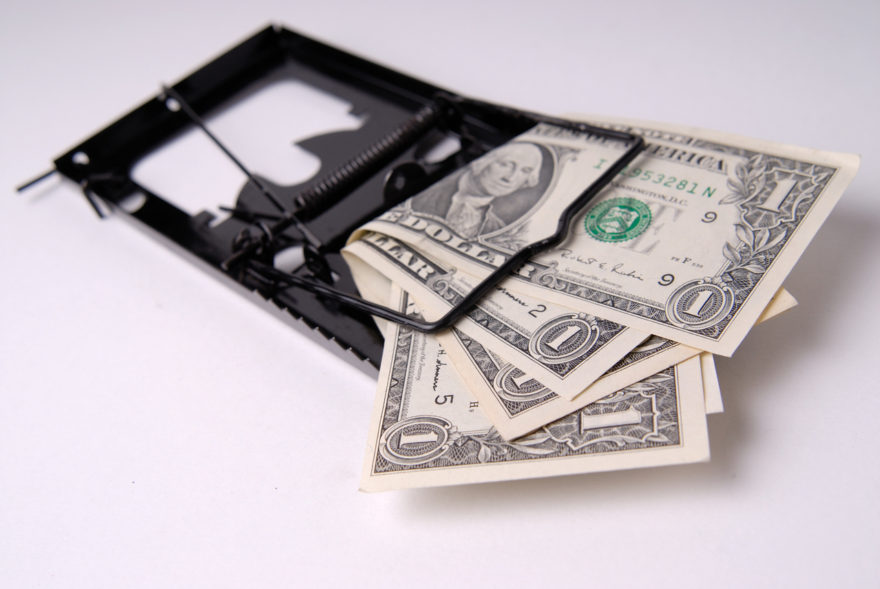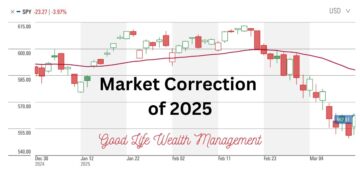Over the years, I’ve seen hundreds of portfolios and 401(k) accounts, and observed investors make tons of mistakes. Admittedly, I have made many of these errors on my own as well, just to double check! Here’s your chance to learn from others’ losses. But, if you still insist that you want to ruin your rate of return, go ahead and make these 10 mistakes…
1) Rely on Past Performance. You invest with winners, not losers! Just find the top performing fund offered by your 401(k) and put all your money in there. That’s why they say past performance is a guarantee of future returns, or something like that.
2) Don’t diversify. Have you seen that Chinese Small-Cap BioTech fund? Why invest in the whole market when you can bet on one tiny, minuscule sliver?
3) Ignore the fact that 80% of actively managed funds under perform their benchmark over five years. You’re going to pick funds from the other 20%. Indexing is for people who are willing to settle for average.
4) Put as much money as possible into your company stock. It’s beat the S&P 500 for X number of years, therefore you’d be stupid to ever take your money out of company stock or to cash in your options. And since you work there, you know more about this investment than anyone. Just like the employees at Nortel, Worldcom, and Enron.
5) To avoid paying taxes, don’t sell your winners. Don’t rebalance or sell overvalued shares. Later, if the stock is down 40% you can pat yourself on the back: “Thank God I didn’t sell when it was up and have to pay 15% tax on my gains. I dodged that bullet!”
6) Never sell your losers either. The loss isn’t real until you sell, and the most important thing is to protect your ego. If you hold on, eventually, you should get your money back. So what if another fund returns 60% while you are waiting for yours to rebound 30%? (Says the guy who has old General Motors shares that are worthless from when the company filed for bankruptcy and wiped out their stockholders.)
7) Do it yourself. Don’t use funds or ETFs, pick individual stocks yourself! It will be fun and easy. Just look at all those smiling people on the commercials for online brokers, they’re getting rich from their kitchen tables! Anyone can beat those fancy investment managers with their extensive training, huge research departments, and decades of experience. And if you spend all day watching your portfolio, it magically grows faster!
8) You know when to get in and out of the market. It’s not market timing if you know what you’re doing. When the market is down, it’s a bad market, so don’t buy then. Wait until the market goes back up before you make your purchases. You should toss out a detailed 20-year financial plan if your gut tells you. And by gut, of course, we mean CNBC, Fox News, or whatever you watched in the preceding 48 hours.
9) When the market is down, your funds are horrible, the managers incompetent, and the market is rigged. When your portfolio is up, it’s because of your brilliant mind for finance. You are investing for decades, but if your portfolio doesn’t go up every single quarter something is horribly wrong with your approach. Change everything you own when this happens.
10) All the good investments are reserved for the wealthy. You can only become rich by investing in complicated, non-transparent private placements or limited partnerships in oil, real estate, leasing, or something you cannot explain in less than three minutes. And it’s rude to ask how much these programs charge, that’s so gauche. On a related note, you should always buy penny stocks that you hear about through an email.
I know no one really wants to wreck their portfolio, but from my vantage point, a lot of our investment pains appear self-inflicted. I can help you avoid these ten mistakes and many, many others. Even more important than avoiding errors, together we can create a financial plan and investment program that will be tailored to your goals, rather than focusing on what the market might do this month or this year.
Professional advice. Comprehensive financial planning. Evidence-based investment management. Ongoing evaluation, monitoring, and adjustment. Those are our tools to help investors succeed. That doesn’t mean that there won’t be years when the market is down, but it does mean we will be better prepared and much less likely to make the mistakes which can make things worse.







